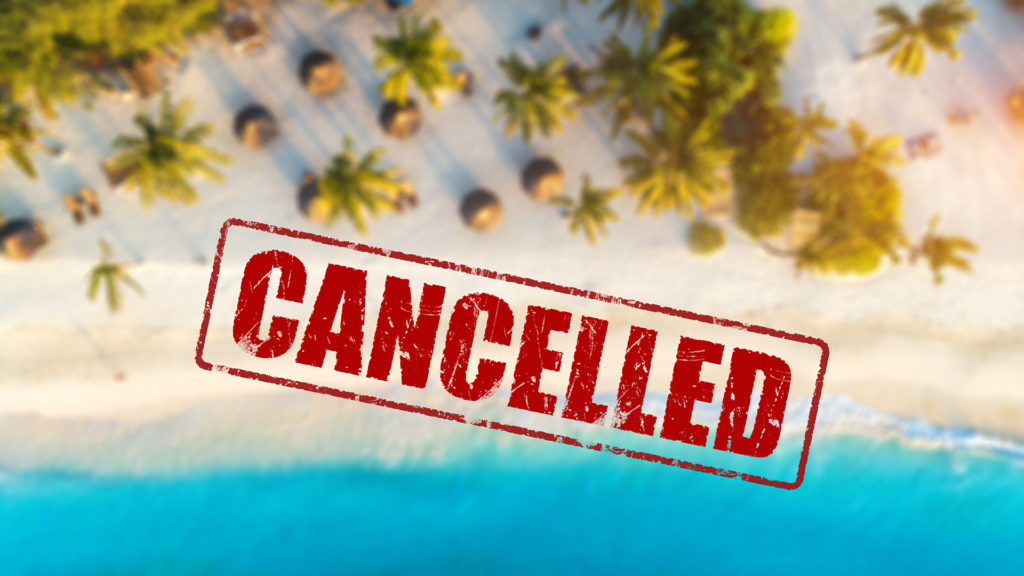
We don’t have to look far to see that the impact of the Covid-19 pandemic on tourism has been both enormous and catastrophic. All resorts, hotels, restaurants, campsites and visitor attractions are closed, and there are few flights. Tourism as we know it has totally ground to a halt.
How will tourism recover? This all depends on the timing of the lockdown – if it is lifted in the UK by the summer then parts of the domestic tourism industry will probably be able to recover quickly. There is likely to be a staycation boom, albeit focussed on accommodation which allows social distancing – such as holiday cottages, canal boats and caravans. Furthermore, this will be concentrated at destinations – the countryside and coast – which enable tourists to avoid large crowds. Urban tourism – with its high densities of tourists – will take longer to recover. Visitor attractions may be able to salvage part of the season, although tourists are likely to be cautious about gathering where there are large numbers of other people. Social distancing within attractions will be the norm, at least in the medium term; some attractions will struggle to accommodate this new requirement.
On the other hand, international tourism is unlikely to recover quickly. Countries will be cautious about opening their borders to allow tourists to enter, possibly requiring visitors to provide some form of proof that they are not infected with Covid-19. At the same time, tourists themselves may be cautious about travelling abroad particularly to those countries that recorded high rates of Covid-19 infection. This, of course, has implications for inbound tourism to the UK.
Certain sectors of tourism will be hit particularly hard. Faced with a shrinking of international travel many airlines will struggle. Furthermore, the combination of lower demand and fewer carriers will mean higher ticket prices: the era of cheap air travel is over, at least in the medium term. Airlines will also have to adapt to requirements for social distancing. Already EasyJet is talking of not using the middle seat on its planes (although Ryanair has reacted derisively to this proposal).
Another likely casualty of the pandemic will be the cruise industry. The nightmarish stories of Covid-19 on board cruise liners will mean that tourists will hesitate before booking cruise holidays. The cruise industry may have to adapt through developing low-density cruises, taking in destinations where there are no large crowds. Similarly business tourism will look very different. Both the expected global recession and higher air fares will reduce demand for business travel, but what may be more significant is that face-to-face business meetings are less essential in a context where it has proved possible to work effectively through videoconferencing.
There may be unexpected outcomes of the Covid-19 crisis. One of the most-publicised phenomena of the past decade has been over-tourism (excessive tourism numbers generating hostile reactions among local populations) although there is no consensus on whether over-tourism is a genuine problem or simply a media construction. Whatever the case, over-tourism is likely to be a thing of the past; destinations such as Venice and Barcelona are unlikely to return quickly to the overcrowding they experienced in 2019. More broadly, high-density warm-weather mass tourism destinations will struggle to attract customers. The future of tourism may turn out to be slow tourism, where a tourist takes part in low-density, low-movement holidays which involve connecting more deeply with a place. The tourism industry has been talking about sustainable tourism for several decades but it has made conspicuously little progress in achieving it. A small silver lining to what will be a beleaguered industry, maybe the realisation of a form of low-density, low-carbon, low-impact, small-scale tourism that is genuinely sustainable.
Dr Duncan Light is Senior Lecturer in Tourism Management at Bournemouth University

One response to “The Road to Nowhere? Tourism after Covid-19”
[…] This piece is written in response to a post originally published in the Covid-19 blog on 13th May 2020 by Duncan which can be found here. […]